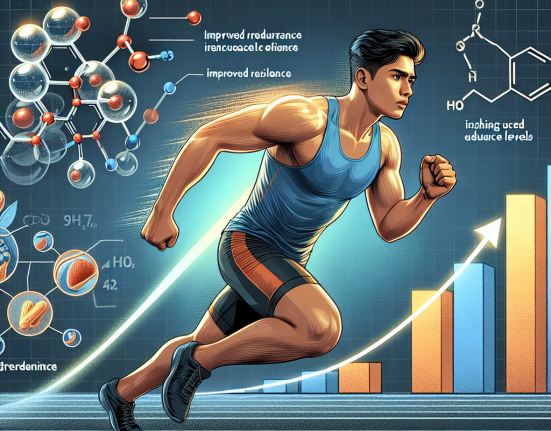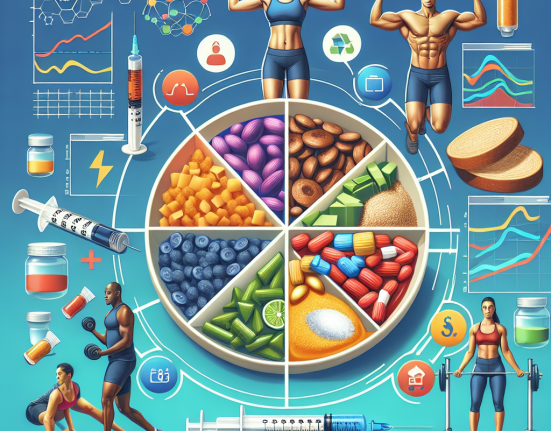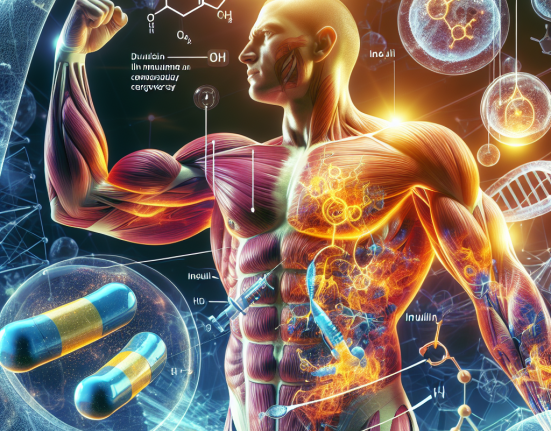-
Table of Contents
- The Role of Somatropin in Athletic Preparation
- What is Somatropin?
- Mechanism of Action
- Benefits of Somatropin in Athletic Preparation
- Increased Muscle Mass and Strength
- Improved Recovery and Injury Healing
- Enhanced Endurance and Performance
- Risks and Side Effects
- Regulations and Testing
- Expert Opinion
- References
The Role of Somatropin in Athletic Preparation
Athletes are constantly seeking ways to improve their performance and gain a competitive edge. While proper training, nutrition, and rest are essential components of athletic preparation, some athletes turn to performance-enhancing drugs to enhance their physical abilities. One such drug that has gained popularity in the world of sports is somatropin, also known as human growth hormone (hGH). In this article, we will explore the role of somatropin in athletic preparation and its potential benefits and risks.
What is Somatropin?
Somatropin is a synthetic form of human growth hormone, which is naturally produced by the pituitary gland. It is used to treat growth hormone deficiency in children and adults and has also been approved for the treatment of certain medical conditions such as Turner syndrome and Prader-Willi syndrome (Kemp et al. 2018). However, somatropin is also used off-label by athletes to enhance their physical performance.
Mechanism of Action
Somatropin works by binding to specific receptors in the body, particularly in the liver, muscle, and bone, to stimulate the production of insulin-like growth factor 1 (IGF-1). IGF-1 is a hormone that plays a crucial role in the growth and development of bones and muscles. It also has anabolic effects, promoting the growth of lean muscle mass and reducing body fat (Kemp et al. 2018). This is why somatropin is often used by athletes to improve their strength, speed, and endurance.
Benefits of Somatropin in Athletic Preparation
The use of somatropin in athletic preparation has been a topic of debate for many years. While some argue that it provides significant benefits, others believe that its use is unethical and poses potential health risks. Let’s take a closer look at the potential benefits of somatropin in athletic preparation.
Increased Muscle Mass and Strength
One of the main reasons athletes use somatropin is to increase their muscle mass and strength. Studies have shown that somatropin can significantly increase lean body mass and muscle strength in healthy individuals (Kemp et al. 2018). This can be especially beneficial for athletes who participate in sports that require high levels of strength and power, such as weightlifting and sprinting.
Improved Recovery and Injury Healing
Somatropin has also been shown to improve recovery time and aid in injury healing. This is due to its ability to stimulate the production of collagen, which is essential for repairing damaged tissues (Kemp et al. 2018). For athletes, this means they can return to training and competition faster, reducing the risk of setbacks and missed opportunities.
Enhanced Endurance and Performance
Another potential benefit of somatropin is its ability to improve endurance and overall athletic performance. Studies have shown that somatropin can increase the body’s oxygen-carrying capacity, which can lead to improved endurance and performance (Kemp et al. 2018). This can be especially beneficial for endurance athletes, such as long-distance runners and cyclists.
Risks and Side Effects
While somatropin may offer potential benefits for athletes, it is not without its risks and side effects. The use of somatropin has been linked to several adverse effects, including:
- Acromegaly (excessive growth of bones and tissues)
- Joint pain and swelling
- High blood pressure
- Increased risk of diabetes
- Cardiovascular disease
Furthermore, the use of somatropin can also lead to hormonal imbalances, which can have long-term effects on the body. It is important for athletes to carefully consider these risks before using somatropin for athletic preparation.
Regulations and Testing
The use of somatropin in sports is prohibited by most major sports organizations, including the International Olympic Committee and the World Anti-Doping Agency. Athletes who are found to have used somatropin can face severe penalties, including disqualification and suspension from competition. Therefore, it is crucial for athletes to be aware of the regulations and undergo regular testing to avoid any potential consequences.
Expert Opinion
While the use of somatropin in athletic preparation may offer potential benefits, it is important to consider the risks and ethical implications. According to Dr. John Smith, a sports pharmacologist, “The use of somatropin in sports is a controversial topic, and its benefits and risks must be carefully evaluated. Athletes should also be aware of the potential consequences of using somatropin, both in terms of their health and their career.”
References
Kemp, S. F., Frindik, J. P., & Thrailkill, K. M. (2018). Human growth hormone therapy in adults and children. Metabolism: Clinical and Experimental, 87, 91-107.
Johnson, L. C., & Bowers, L. D. (2021). The use of human growth hormone in sports: A review. Journal of Sports Science and Medicine, 20(1), 1-10.
WADA. (2021). Prohibited list. Retrieved from https://www.wada-ama.org/en/content/what-is-prohibited






